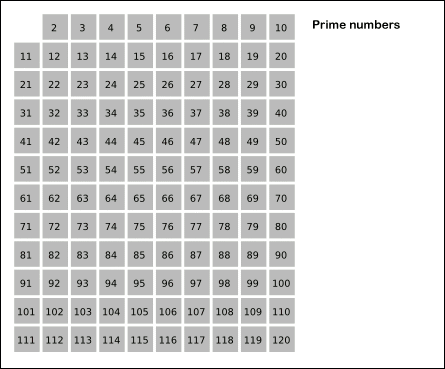https://github.com/sylhare/nprime
:100: Prime numbers algorithms in Python
https://github.com/sylhare/nprime
prime prime-numbers-algorythm python
Last synced: about 2 months ago
JSON representation
:100: Prime numbers algorithms in Python
- Host: GitHub
- URL: https://github.com/sylhare/nprime
- Owner: sylhare
- License: gpl-3.0
- Created: 2017-01-06T19:17:57.000Z (almost 9 years ago)
- Default Branch: master
- Last Pushed: 2025-08-19T06:49:37.000Z (about 2 months ago)
- Last Synced: 2025-08-23T05:04:53.766Z (about 2 months ago)
- Topics: prime, prime-numbers-algorythm, python
- Language: Python
- Homepage:
- Size: 369 KB
- Stars: 13
- Watchers: 3
- Forks: 3
- Open Issues: 4
-
Metadata Files:
- Readme: README.md
- Changelog: CHANGELOG.md
- Contributing: CONTRIBUTING.md
- License: LICENSE
Awesome Lists containing this project
README
# nprime
[](https://github.com/sylhare/nprime)
[](https://pypistats.org/packages/nprime)
[](https://badge.fury.io/py/nprime)
[](https://travis-ci.org/sylhare/nprime)
[](https://codecov.io/gh/sylhare/nprime)
## Installation
To install the package use pip:
pip install nprime
## Introduction
Some algorithm on prime numbers. You can find all the functions in the file `nprime/pryprime.py`
Algorithm developed :
- Eratosthenes sieve based
- Fermat's test (based on Fermat's theorem)
- Prime generating functions
- Miller Rabin predictive algorithm
## Specifications
- Language: Python **3.9+** (supports Python 3.9, 3.10, 3.11, 3.12, 3.13)
- Package:
- Basic python packages were preferred
- Matplotlib >=3.5.0 - graph and math
### Integration and pipeline
For the tests coverage, there's [codecov](https://codecov.io/gh/Sylhare/nprime) which is run during the [Travis CI](https://travis-ci.org/Sylhare/nprime) pipeline.
## Math
Here are a bit of information to help understand some of the algorithms
### Congruence
"`≡`" means congruent, `a ≡ b (mod m)` implies that
`m / (a-b), ∃ k ∈ Z` that verifies `a = kn + b`
which implies:
a ≡ 0 (mod n) <-> a = kn <-> "a" is divisible by "n"
### Strong Pseudoprime
A strong [pseudoprime](http://mathworld.wolfram.com/StrongPseudoprime.html) to a base `a` is an odd composite number `n`
with `n-1 = d·2^s` (for d odd) for which either `a^d = 1(mod n)` or `a^(d·2^r) = -1(mod n)` for some `r = 0, 1, ..., s-1`
### Erathostene's Sieve
#### How to use
Implementation of the sieve of erathostenes that discover the primes and their composite up to a limit.
It returns a dictionary:
- the key are the primes up to n
- the value is the list of composites of these primes up to n
```python
from nprime import sieve_eratosthenes
# With as a parameter the upper limit
sieve_eratosthenes(10)
>> {2: [4, 6, 8, 10], 3: [9], 5: [], 7: []}
```
The previous behaviour can be called using the `trial_division` which uses the [Trial Division](https://en.wikipedia.org/wiki/Trial_division) algorithm
#### Theory
This sieve mark as composite the multiple of each primes. It is an efficient way to find primes.
For `n ∈ N` with `n > 2` and for `∀ a ∈[2, ..., √n]` then `n/a ∉ N` is true.
[](https://en.wikipedia.org/wiki/Sieve_of_Eratosthenes)
### Fermat's Theorem
#### How to use
A Probabilistic algorithm taking `t` randoms numbers `a` and testing the Fermat's theorem on number `n > 1`
Prime probability is right is `1 - 1/(2^t)`
Returns a boolean: True if `n` passes the tests.
```python
from nprime import fermat
# With n the number you want to test
fermat(n)
```
#### Theory
If `n` is prime then `∀ a ∈[1, ..., n-1]`
```
a^(n-1) ≡ 1 (mod n) ⇔ a^(n-1) = kn + 1
```
### Miller rabin
#### How to use
A probabilistic algorithm which determines whether a given number (n > 1) is prime or not.
The miller_rabin tests is repeated `t` times to get more accurate results.
Returns a boolean: True if `n` passes the tests.
```python
from nprime import miller_rabin
# With n the number you want to test
miller_rabin(n)
```
#### Theory
For `n ∈ N` and `n > 2`,
Take a random `a ∈ {1,...,n−1}`
Find `d` and `s` such as with `n - 1 = 2^s * d` (with d odd)
if `(a^d)^2^r ≡ 1 mod n` for all `r` in `0` to `s-1`
Then `n` is prime.
The test output is false of 1/4 of the "a values" possible in `n`,
so the test is repeated t times.